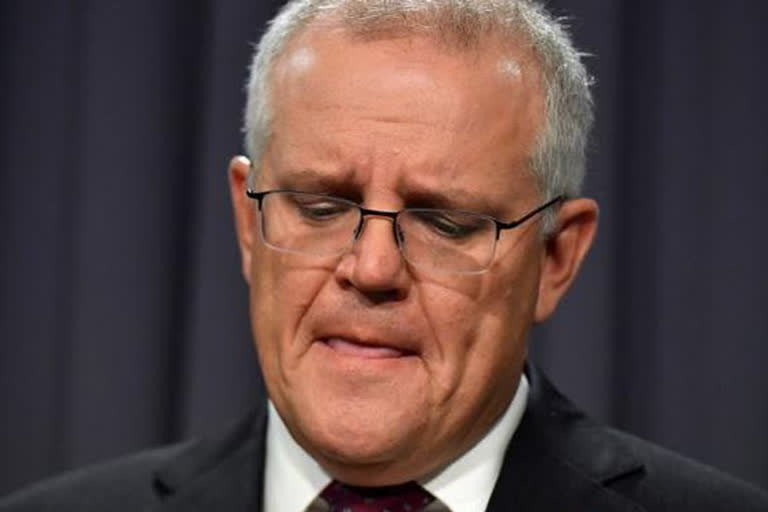New Delhi: The trilateral AUKUS security alliance complements partnerships like Quad and there was a "very warm embrace" of the deal by India and Japan as both the countries totally understood and supported what it is seeking to achieve, Australian Prime Minister Scott Morrison said on Thursday. He said Quad comprising India, Australia, the US and Japan, is not an alliance and it is a practical partnership of like-minded democracies and economies coming together to promote a free and open Indo-Pacific and deal with some of the world's biggest challenges.
When asked about ways to balancing the relationship between India and China in the backdrop of Beijing's recent comments that the Quad is meant to counter its influence in the Indo-Pacific, Morrison said he does not see the region in such "binary terms".
"I don't think India and Australia consider it as something that needs to be balanced in relation to China. That's not the objective. Our objective working together is to ensure that we promote a free and open Indo-Pacific, and everybody who wants to participate in that, including China, is a welcome partner in that cause," he said.
The Australian prime minister was speaking at an online media briefing that came six days after the first in-person summit of the Quad in Washington that was hosted by US President Joe Biden and attended by Prime Minister Narendra Modi, Morrison and outgoing Japanese PM Yoshihide Suga.
"We don't really want to see the region in such binary terms. That's not how the Quad is approaching the challenges that we see in the region," he said, according to the transcript of the briefing released by his office.
"Of course, we want to deter any type of behaviour that threatens peace and security in the region, that threatens the development and prosperity of countries in the region, or in any way seeks to limit their sovereignty or what their access to the freedoms that exist under international law," he said.
On AUKUS (Australia, the UK and the USA) pact that will facilitate Australia getting technology to build nuclear-powered submarines, Morrison said it will complement partnerships like the Quad rather than taking away anything from them.
"There was a very warm embrace of the AUKUS announcement by our Quad partners. Narendra (Modi) and Yoshi (Japanese PM) totally understood and supported what we were seeking to achieve there. And they totally were positive about how it complemented the Quad," Morrison said.
The alliance, increasingly seen as an effort to counter China's influence in the South China Sea, was announced by US President Biden, UK Prime Minister Boris Johnson and Morrison two weeks back.
France reacted angrily to the formation of the new alliance as it resulted in Paris effectively losing a multi-billion dollar deal to build 12 conventional submarines for Australia. France is also upset over its exclusion from the alliance.
He said Australia has direct bilateral partnerships with the US and the UK and they are its formal allies.
"So what was great in the Quad when I spoke to both prime ministers before the announcement, the day before, they were pretty much there at hello. They totally understood it, understand its strategic significance, the direction, how it was going to help and add to what we're all doing," Morrison said.
"And I thought that was very positive. I think that just showed the instinctive nature of that Quad partnership. We sort of all know where we're each going and how we're operating. And so we're quite synchronised," he said.
The Australian PM said that one of the goals that India and Australia and Japan have is to continue to encourage the US and Europe for greater economic engagement within the Indo-Pacific.
He said the Quad is also going deeper into critical and emerging technologies, particularly in rare earth, and the supply chain for rare earth and critical minerals.
"The manufacturing capabilities that exist within India, combined with the resource strengths of Australia in this field, provide a natural partnership," he said.
"And when you link that with the advanced economies in the US and Japan, it is a natural, a very natural partnership that is seeking to create more secure, more reliable, and more competitive supply chains in the rare earth space, through to end-user products," he added.
(PTI)



